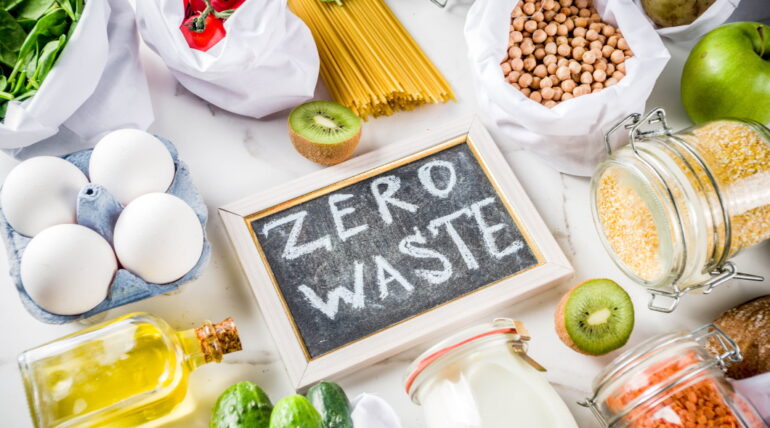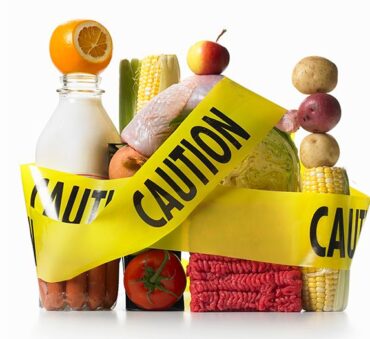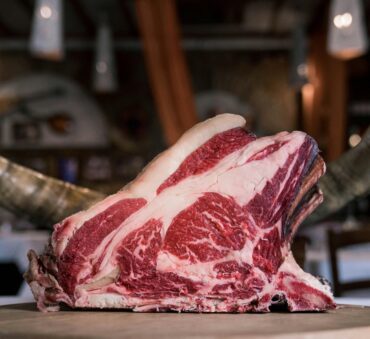Food waste is a growing concern in our society, with an estimated one-third of all food produced in the world going to waste each year. This not only has a significant impact on GHG and the environment, but also on the global economy. Food waste upcycling has gained attention in recent years as a potential solution to the global waste problem. By repurposing food waste in creative ways, individuals, organizations, and businesses can reduce waste, save resources, and create new economic opportunities.
In this blog, we will explore what food waste upcycling is, its benefits for businesses and the environment, and how it can be implemented effectively.
What does upcycled food mean?
Food waste upcycling refers to the process of transforming food waste and ingredients that would otherwise be discarded, into new products that have a higher value or greater usefulness. This practice aims to reduce the amount of food waste that ends up in landfills and create a more sustainable and circular food system.
The ways to reuse food waste can take many different forms, including the use of household food waste to create new dishes, the conversion of waste into animal feed or fertilizer, and the production of biochar or other useful materials. In some cases, food waste may be processed and repackaged as a new food product or ingredient, such as flour made from spent grain or condiments made from vegetable scraps.
Business Cases For Upcycled Food
Let’s explore some business food waste recycling cases:
Spent grain from breweries and distilleries
Spent grain is a by-product of the brewing and distilling process that is rich in nutrients and fiber, making it an excellent source of feed for livestock. It can also be composted and used as a soil amendment or processed into biofuel.
Fruit and vegetable side-streams from food processing plants
Side-streams, or the parts of fruits and vegetables that are typically discarded during processing, can be used to create animal feed or fertilizer. They can also be processed into juice concentrates, which can be used to create new products like fruit snacks or sweeteners.
Beverage industry by-products
By-products from the beverage industry can be repurposed into animal feed, cosmetics, or natural dyes. For example, apple pomace can be used to create natural pectin, while grape marc can be processed into resveratrol, a popular dietary supplement.
Coffee grounds from cafes and restaurants
Coffee grounds can be composted to create a nutrient-rich soil amendment or processed into biofuel. They can also be used to create natural beauty products like soaps and scrubs.
Used cooking oil from restaurants and food processing plants
There’s a considerable portion of restaurant food waste that can be recycled, and used oil is a great example. Used cooking oil can be processed into biodiesel, which can be used as a fuel source for transportation or heating. It can also be used to create soap, which is a common ingredient in many household and personal care products.
At ShapiroE, we are equipped to manage a wide variety of waste streams generated by businesses, including fresh fruit and vegetable scraps, energy drinks, wine, beer, and spirits, bakery waste, flavorings, snacks and chips, meat, and more. Through our network of sustainable vendor partners, we are able to offer tailored solutions while minimizing costs.
Business benefits
Upcycling food waste not only has positive environmental impacts but can also provide a range of benefits for businesses:
Cost savings
By upcycling food waste, businesses can reduce their disposal costs and save money. Additionally, it could be turned into new products, which can also bring in new revenue streams.
Sustainability
Businesses can demonstrate their commitment to sustainability, which can be a positive marketing tool and increase customer loyalty.
Compliance
Safe methods of food waste management are often a requirement of environmental regulations; therefore, upcycling can help businesses stay in compliance.
Waste reduction
It helps to reduce the amount of waste that businesses produce, which can help conserve resources and reduce their environmental impact.
Energy conservation
Businesses can conserve energy that would otherwise be used to produce new products from raw materials. This results in reduced energy costs and greenhouse gas emissions.
Better use of resources
It allows businesses to make better use of resources and minimize the waste that they produce. This leads to a more efficient use of resources and a lower impact on the environment.
Innovation
Upcycling promotes food technology innovation and the development of new products and processes. This can help businesses stay competitive in the marketplace.
Improved food recall management
Upcycling can facilitate better food recall management. This is the case by reducing the volume of waste that must be tracked and monitored, streamlining the process of identifying and retrieving contaminated products, and mitigating the environmental impact of product disposal. It can also help you save up on the exorbitant cost of food recalls and their impact on your finances.
How We Can Help You Upcycle Food Efficiently?
At ShapiroE, we provide a step-by-step process for efficiently upcycling food waste that can help your company reduce costs and improve its environmental impact.
Contact Us
Simply reach out to to discuss your pre-consumer food or beverage waste and find the best sustainable solution for your needs. Our team will ask a series of questions to determine the type of waste, how it’s packaged, the quantity or volume, and its location.
We Will Liaise with Our Network of Vendors
We leverage our extensive network of vendor partners across the U.S. to find the most suitable and cost-effective solution for your specific waste stream.
Proposal
Once we have identified the best vendor partner for the job, we will submit a proposal to you for your review and acceptance.
Freight Arrangements
Once the proposal is accepted, freight can be arranged, by either you or us, and the waste product will be delivered to the recycling facility.
Waste Processing
The recycling facility processes the waste through repackaging, separating recyclables, and using the product for the specific vendor’s end use. The facility will then provide a Certificate of Recycling/Certificate of Disposal to us, which we will forward on to you.
Our vendor partners have a wide variety of end uses, including wastewater treatment, waste-to-energy, compost and fertilizers, biofuels, upcycling, animal feed, and anaerobic digestion. The particular end use will depend on the type of waste being processed and the vendor’s proprietary processes and procedures.
Take Action now for a Greener Future
ShapiroE’s food waste disposal services offer an innovative and sustainable solution to managing waste in businesses. At ShapiroE, we bring 75+ years of experience to the table, and we are committed to finding the best solution for each customer’s unique needs. Contact us today to learn more and take the first step towards a greener, more sustainable future for your business.



